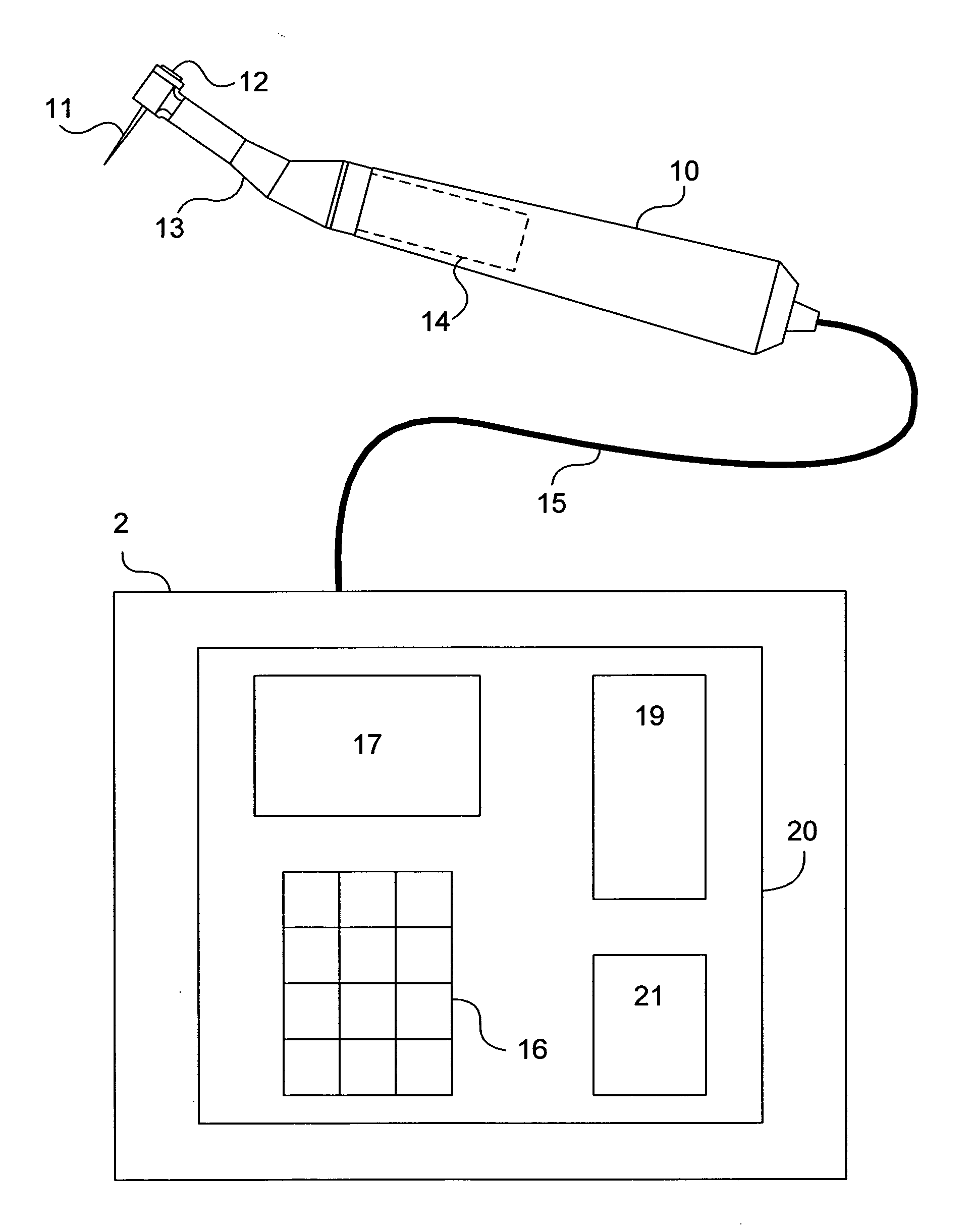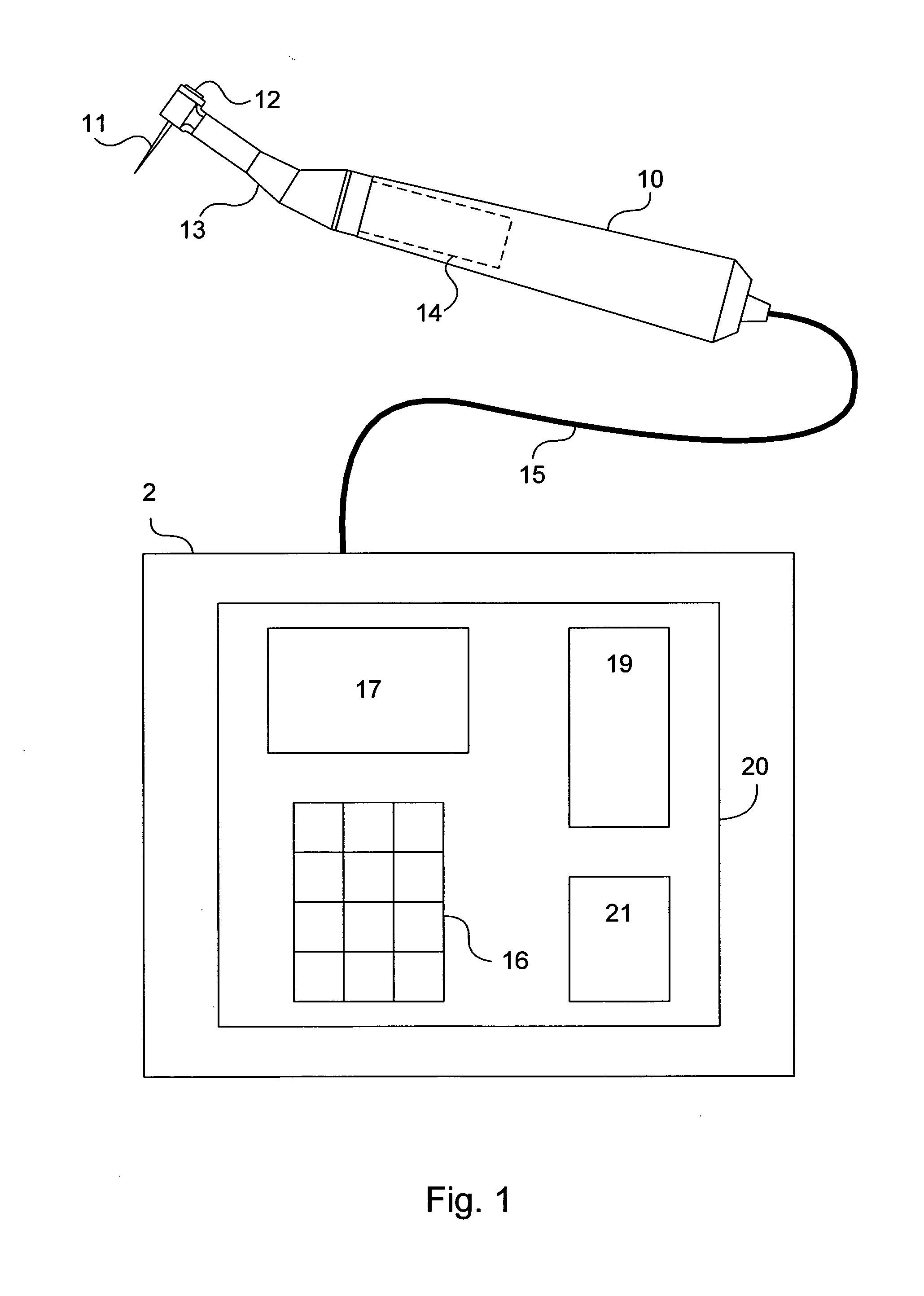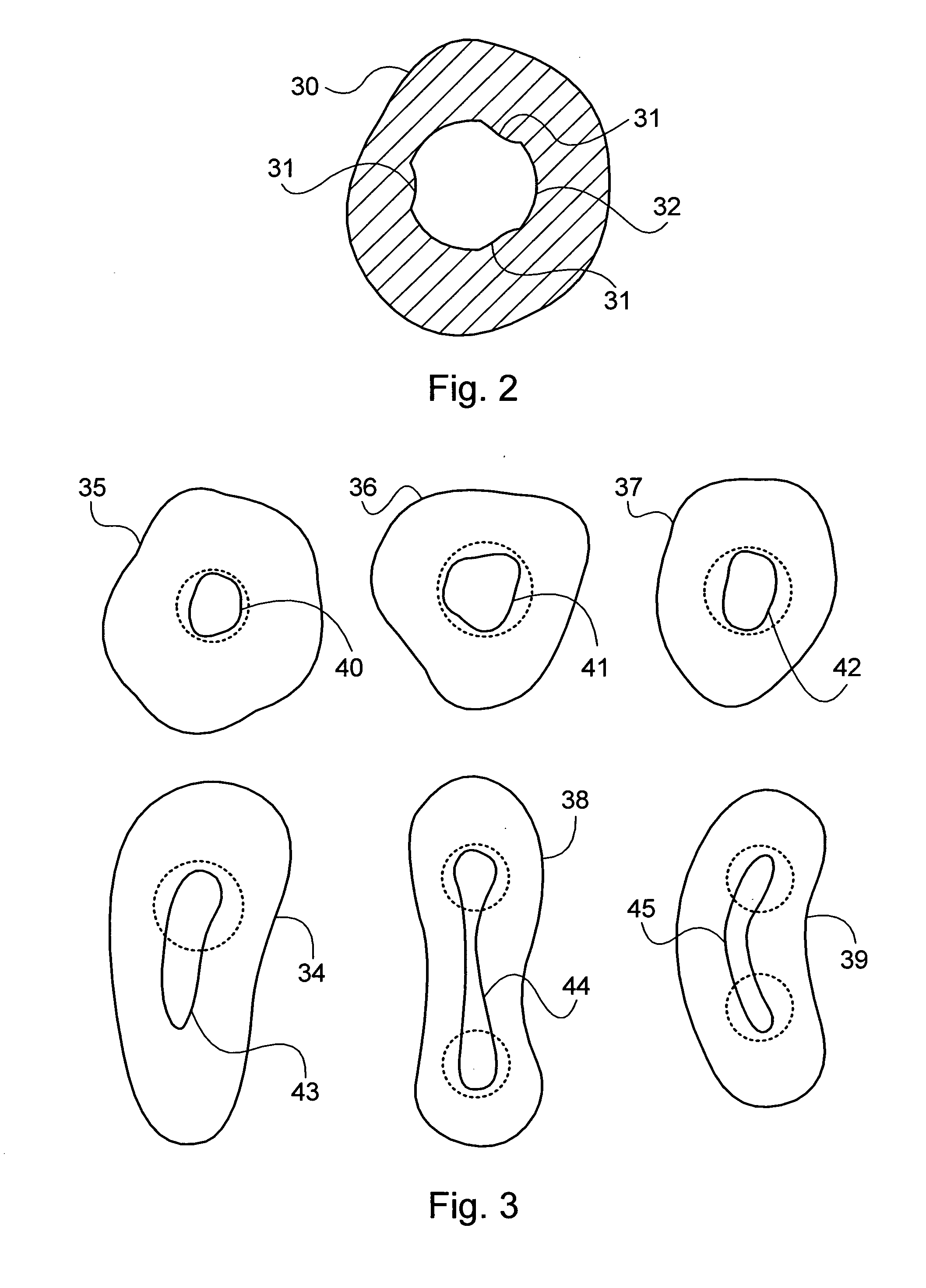System for endodontic treatment
a technology for endodontics and systems, applied in the field of endodontic systems, can solve the problems of sudden file breakage, nitinol rotary file subject to significant mechanical stress, and the use of rotary files was initially limited to straight canals, so as to reduce the self-threading of rotary files, and improve the accuracy of axial file movemen
- Summary
- Abstract
- Description
- Claims
- Application Information
AI Technical Summary
Benefits of technology
Problems solved by technology
Method used
Image
Examples
Embodiment Construction
[0050]FIG. 1 shows a system 2 for endodontic treatment in accordance with one embodiment of the invention. The system 2 comprises a handpiece 10 and a control unit 20. An endodontic file 11 is secured in a chuck of the handpiece head 12. The handpiece 10 further comprises an electric motor 14 fastened to a contra angle 13. The motor 14 is connected by a cable 15 to the control unit 20 which includes a microprocessor 19, a memory 21 a keyboard 16 and a display 17. The control system 20 controls the motor 14 in order to execute a predetermined or selectable regime of motion of the file 11, as explained below. In a cordless embodiment, the control unit is incorporated into the handpiece 10 and the system is battery operated. In another embodiment, the control unit is incorporated into the handpiece 10 and the system can alternate between being cordless or connected by a cable 15 to the host control / power source / charger unit.
[0051]The memory 21 may be used to store operational parameter...
PUM
 Login to View More
Login to View More Abstract
Description
Claims
Application Information
 Login to View More
Login to View More - R&D
- Intellectual Property
- Life Sciences
- Materials
- Tech Scout
- Unparalleled Data Quality
- Higher Quality Content
- 60% Fewer Hallucinations
Browse by: Latest US Patents, China's latest patents, Technical Efficacy Thesaurus, Application Domain, Technology Topic, Popular Technical Reports.
© 2025 PatSnap. All rights reserved.Legal|Privacy policy|Modern Slavery Act Transparency Statement|Sitemap|About US| Contact US: help@patsnap.com



